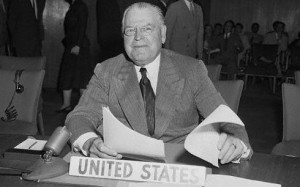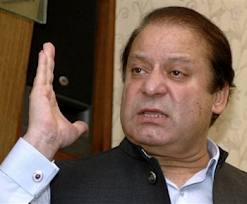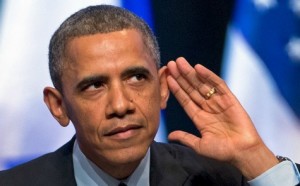Peace Watch » Kashmir-Talk » Washington: Third Party Mediation in Kashmir
Washington: Third Party Mediation in Kashmir
To be read along-with Obama’s proposed visit to India
Punchline
Z.G. MUHAMMAD
The “Freedomists” are busy in extending a helping hand to the flood hit people. Ostensibly have freed themselves from their announced election boycott campaign. And have almost left the space to the ‘electoralists’ to play the ball. The BJP and its team of IT experts from Mumbai have started a blazing media campaign in the state. Flooding media with advertisements, the party has almost outsmarted the regional parties. Choreographing the RSS pracharaks and some Muslim clerics from outside Jammu and Kashmir, it has been endeavouring to reach out to some religious institutions for hiring the services of some clerics for mobilizing support for the party.
Caught up in the blitz of media campaign and some traditional political surrogates vying for a space in power politics the regional ‘electoral-parties’ and the ‘electoralists’ are trying to give tough fight to the ruling party in New Delhi. To stem the media tides and manoeuvrings and making lost-ditch effort to stop saffron march into the state, the regional parties are engaged in battle royal to make it to the citadel of the state power. Chances of winning a majority are distinctly visible more in the regional parties than the “centralists-parties”. Like in all other elections in the state, the powers that be are pushing more and more candidates into the fray. Ironically, after the 2006 assembly elections, yet another category the “defeated candidates” has been added to the political lexicon of Kashmir. In fact, this tribe of ‘electoralists’ in official lexicon are described as the ‘protected persons’ – enjoying government accommodation and security.
In this weird electoral scenario when ‘abrogating of the article 370, annulling of the 1927- state subject laws and changing the demography of the state by allowing citizenship rights to the West Pakistan refugee are part of the ‘dominant discourse’, talking about the resolution of the Kashmir or the moves towards that, on the face of it does not seem to be in tune with the obtaining situation. And with Narendra Modi continuing to be on the crest of popularity with the electorate that voted him to power stating that almost a yearlong diplomatic stand-off between Islamabad and New Delhi will start melting at the commencement of the New Year also sounds an overstatement.
More than domestic politics, it will be the regional politics that would dictate future of India and Pakistan relations and bring them to the negotiation table for finding a just solution for the Kashmir dispute. The departure of the last contingent of the USA troops from Afghanistan as I wrote in my past Monday column will have an impact on relation between the two countries. The improved relations between Afghanistan and Pakistan as were testified during recent visit of Afghanistan President, Ashraf Ghani to Islamabad augur well for the region. The two day visit by Ghani unlike those by maverick Hamid Karzai ended at an optimistic note- its ripples were felt in Washington as well. Notwithstanding, some in Washington subscribing to the idea that ‘the military withdrawal from Afghanistan removes incentives for staying close to Pakistan’ but most favoured opinion particularly in the State Department and USAID, is that Pakistan is strategically significant in its own right and warrants continued engagement.’ In Pakistan also there is a section of opinion makers is highly sceptical about India’s role in the coming months. It believes that it will sabotage “any rapprochement between Islamabad and Kabul presupposing scaling down of India’s subversion against Pakistan from Afghan soil.” Disbelief of some Pakistani analysts about India’s role in Afghanistan apart, there is a professed change in relations between Washington and Islamabad. The weeklong visit of Pakistan Army chief was indicative that compared to past many years the US- Pakistan relation have improved after Islamabad started war against PT in North Waziristan. “Washington has publicly waxed ecstatic about the operation.”
The improved US-Pakistan relations found an important manifestation on Friday evening, when US President, Obama ‘called up Pakistan, Prime Minister, Nawaz Sharif to take him “into confidence” on his upcoming trip to New Delhi on January 25, to participate in India’s Republic Day. Barrack Obama will be first US President to participate in the Republic Day. It is a shot in the arm of Narendra Modi- who remained a bête noire for over twelve years for Washington. New Delhi-Washington relations since 1999 have been scaling new peaks. In fact the stage for India-US friendship was set during summit between President Clinton and Prime Minister Vajpayee in 2001. During the tenure of President Bush the relation between Washington and New Delhi, after the nuclear deal where further cemented.
In a situation when US is looking at India as an ally and an important strategic partner in the region for containing China the US President taking into “confidence” Pakistan Prime Minister before visiting New Delhi raises few questions. It is not part of protocol- why this call? What prompted Nawaz Sharif to ask U.S. President Barack Obama to take up the Kashmir issue with the Indian leadership during his visit? Nawaz Sharif also told him that an early resolution of Kashmir would bring enduring peace, stability and economic cooperation to Asia.” India, after calling of the Secretary level talks on alibi of Pakistan High Commission talking to Hurriyat leaders is no mood to talk to Pakistan. The question arises will this mind-set change after President Obama’s visit to New Delhi.
It should not be come as a surprise, If India and Pakistan resume composite dialogue in February 2015, or immediately after election in the state are over. In India and Pakistan relations, instances are galore when Washington has arbitrated peace between the two and made them resume a dialogue on Kashmir and other issue. It was but for the third party mediation by President Clinton that Pakistan withdrew its troops from Kargil in 1999. Here one is reminded, it was during worst relations between the two countries that Vajpayee invited Musharraf for a summit meeting with him in Agra on May 2001. “One of the major factors for this was India was under friendly pressure the US and other major powers to resume dialogue with Pakistan on issues relating Kashmir and nuclear reduction.”
Filed under: Kashmir-Talk








